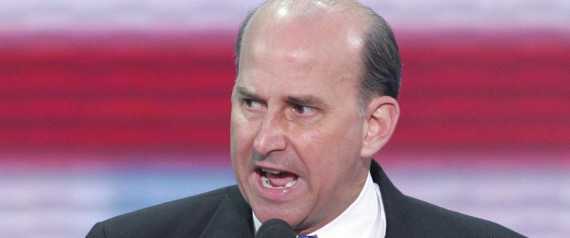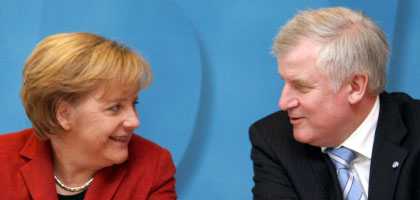The multiculturalism debate in Germany is ignoring the glaring flaws in our education system
Aylin Selçuk
The Guardian
 ‘If you don’t like it here, why don’t you go back to your own country? We Germans would love it, because we like you as much as a terminal illness.” I get emails like this nearly every day. The reason why is that I recently decided to take legal action against Thilo Sarrazin. Sarrazin is a former head of the Bundesbank, a Social Democrat, and the author of a bestselling book, Deutschland Schafft Sich Ab (“Germany is digging its own grave”), in which he claims that the poor intelligence of young German Muslims is dragging down the education system.
‘If you don’t like it here, why don’t you go back to your own country? We Germans would love it, because we like you as much as a terminal illness.” I get emails like this nearly every day. The reason why is that I recently decided to take legal action against Thilo Sarrazin. Sarrazin is a former head of the Bundesbank, a Social Democrat, and the author of a bestselling book, Deutschland Schafft Sich Ab (“Germany is digging its own grave”), in which he claims that the poor intelligence of young German Muslims is dragging down the education system.
“I don’t have to accept anyone who rejects this country’s constitution, doesn’t ensure their children are properly educated, and only produces little headscarf-girls,” he writes. Since I filed my suit, the number of emails I receive has almost doubled: I am threatened, insulted and abused.
In the 70s, when he worked at the finance ministry, Sarrazin had the bright idea to sell off West Berlin to the GDR. This time around, he has it in for Berliners called Mehmet, Zeynep or Muhammad. They are supposed to come up with the solutions for the problems with a 50-year-old migration policy that has left many young Turks in Germany feeling unsure if they are Turkish or German. They are meant to realise on their own that they live in a “parallel society” and start adjusting themselves to the norm. That’s quite a big ask. Yet in Germany, “That man has a point …” seems to be the starting point for most discussions about Sarrazin’s book.
It’s unclear to me where most Germans get their impression of ethnic minorities from. They are, after all, just that: minorities. How many of those who feel threatened by us actually know someone of Turkish origin? Current statistics show that more than 60% of the population have no direct contact with these so-called foreigners. Moreover: how is such a small part of the population meant to be able to destroy the intelligence of a whole country?
In the whole debate people seem to have lost sight of the fact that Sarrazin’s argument rests on one of the most schoolchildish insults around: that Turkish people are stupid. “A large number of Arabs and Turks,” Sarrazin has said, “make no constructive contribution anywhere but the vegetable trade.” I find this personally insulting, not least because my own family’s story proves that this isn’t the case. When my grandparents came to Germany from Turkey, they couldn’t read or write. Today, my mother manages a bank branch in Berlin, while my father works as a journalist. When I was younger, they were so desperate for me to get a decent education that they moved to a more expensive part of Berlin so that I could get into a good Gymnasium, a secondary school with an emphasis on academic learning. I now study dental medicine at Berlin University.
The point I am trying to make is less about bigging up a personal achievement than about shifting attention to the area that I see as the real source of Germany’s social problem: education.
“Human dignity is untouchable”: this universal right is present both in basic German law and in the first article of the general declaration of human rights. You do not have to earn dignity; it is not a trait, like wisdom or beauty; you possess it from birth. The idea that every person is worthy because of their existence alone forms the very basis of the term “human dignity”.
Yet the German worldview that has emerged during the Sarrazin debate is quite different from this. It divides the population into the worthy and the worthless: those with a decent education, and those without. How the worthless are to be turned into worthy members of society – that is a question that has been conveniently left to one side in this debate. It’s worth remembering that not more than 5% of German students come from the so-called lower social classes.
To make things worse, Sarrazin has above all achieved one thing: Germany is changing from being a country that used to attract immigrants into one that makes ethnic minorities feel they would rather emigrate. Exclusion and confrontation with prejudice are becoming a feature of daily life for many of us; we are made to feel like second-class citizens, in spite of having an education and a career. Racist comments are made socially acceptable; double standards prevail for freedom of expression.
Even “desirable foreigners” with a successful career or a promising CV will emigrate to other EU countries or the US. The media are jointly responsible for this. By going along with a publisher’s marketing strategy, they have shown that inciting hatred can lead to financial gain. Well done, Thilo Sarrazin.
• This article first appeared in the anthology Manifest der Vielen: Deutschland erfindet sich neu
via Educating Thilo Sarrazin | Aylin Selçuk | Comment is free | The Guardian.






